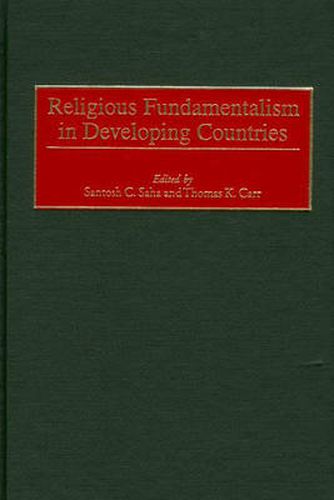Readings Newsletter
Become a Readings Member to make your shopping experience even easier.
Sign in or sign up for free!
You’re not far away from qualifying for FREE standard shipping within Australia
You’ve qualified for FREE standard shipping within Australia
The cart is loading…






Examines the impact and implications of religious fundamentalism in developing countries. Using a variety of methodological approaches, this timely book offers a thorough examination of the impact and implications of religious fundamentalism in developing nations. The authors explore why and how adherence to fundamentalist principles affects the social, political, and religious development of such countries as Israel, India, Pakistan, Bangladesh, Egypt, and the Philippines. One of the most significant contributions of this volume is that it challenges the assumption that fundamentalism in developing countries is based solely on religious motivations. The authors maintain that fundamentalism of this sort is motivated by both religious and political convictions. This combination of religious and political motivations allows fundamentalism to exert a tremendous influence on the public policies of these developing nations. As the social fabric of such countries continues to be developed, it is clear that fundamentalism will continue to play a significant and potentially dangerous role.
$9.00 standard shipping within Australia
FREE standard shipping within Australia for orders over $100.00
Express & International shipping calculated at checkout
Examines the impact and implications of religious fundamentalism in developing countries. Using a variety of methodological approaches, this timely book offers a thorough examination of the impact and implications of religious fundamentalism in developing nations. The authors explore why and how adherence to fundamentalist principles affects the social, political, and religious development of such countries as Israel, India, Pakistan, Bangladesh, Egypt, and the Philippines. One of the most significant contributions of this volume is that it challenges the assumption that fundamentalism in developing countries is based solely on religious motivations. The authors maintain that fundamentalism of this sort is motivated by both religious and political convictions. This combination of religious and political motivations allows fundamentalism to exert a tremendous influence on the public policies of these developing nations. As the social fabric of such countries continues to be developed, it is clear that fundamentalism will continue to play a significant and potentially dangerous role.